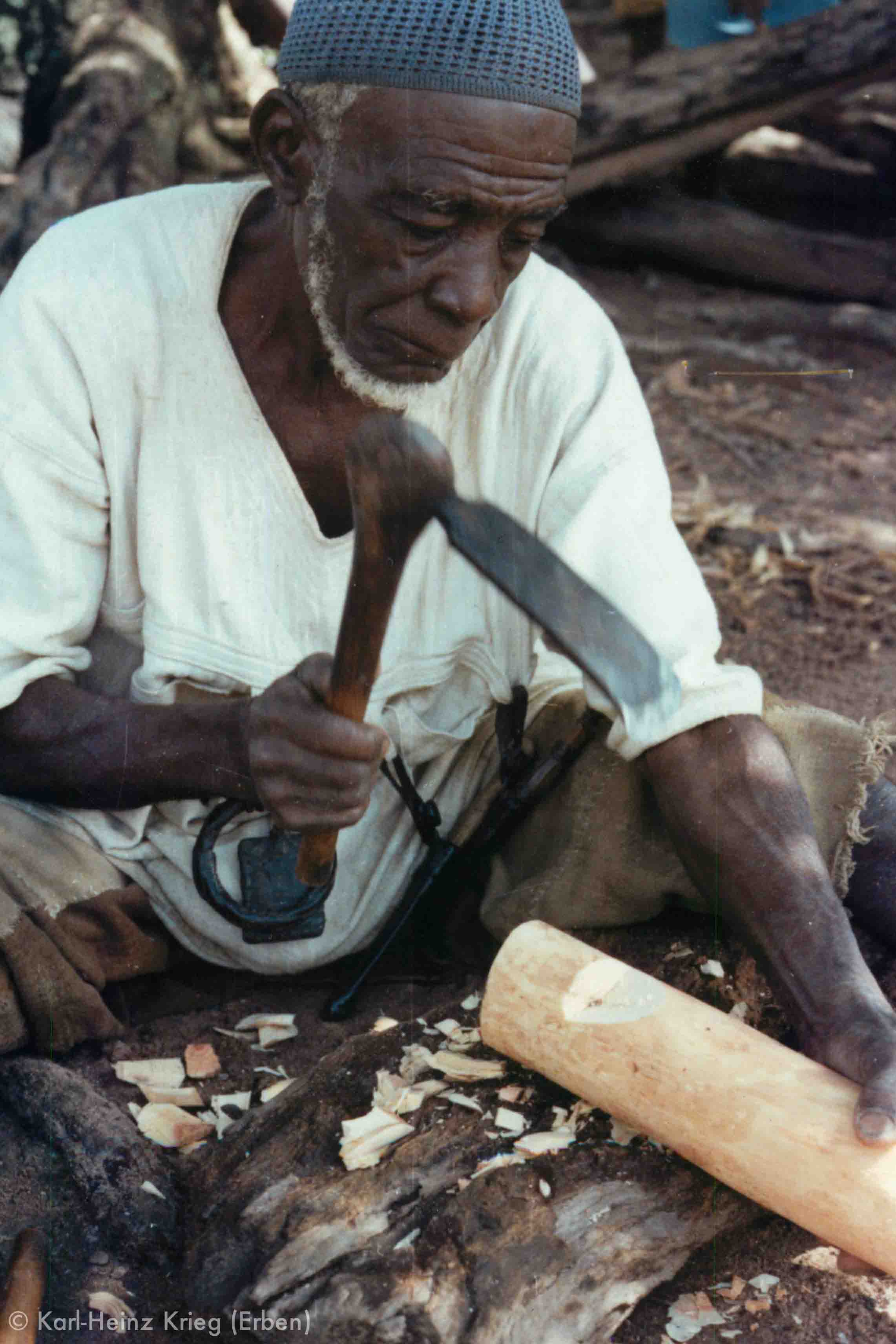Tinnin Fané
Numu sculptor, c. 1910–1993, photo: 1981
Fakola, Mali
Tinnin Fané lived in Mali, in the village of Fakola, near the border to Côte d'Ivoire, about 50 km west of Tengréla, where he worked as a blacksmith and carved masks and figures for the people in the region. Fané said that his ancestors first came from Niamala in the north later moving to the nearby village of Mpiessana before finally settling in Fakola where they worked as blacksmiths. It was here that they built furnaces to smelt iron from which they forged tools such as small hoes called Dabas and axes and gained some reputation as carvers of masks and figures.
In 1981, when Fané was already an old man, he carved a wooden figure for Karl-Heinz Krieg, who documented him sculpting it by photos and in a film. Mory Fané, one of Tinnin Fané’s younger brothers, explained the purpose of such figures as follows: “This figure is called Mayeni in Fakola and was used by a Tchein-làlà (a diviner among the local Bambara). Tchein-làlà means ‘he who studies the sand to resolve other people’s problems’.” (Mory Fané, 1996)
Objects by Tinnin fané
Female figure acquired in 1996 in Fakola (Mali), where it was used by a diviner from the Bambara group, wood, H. 47 cm
BIBLIOGRAPHY
Private notes taken in the field, Karl-Heinz Krieg
Text: Helen Krieg and Daniel Mato, PhD










